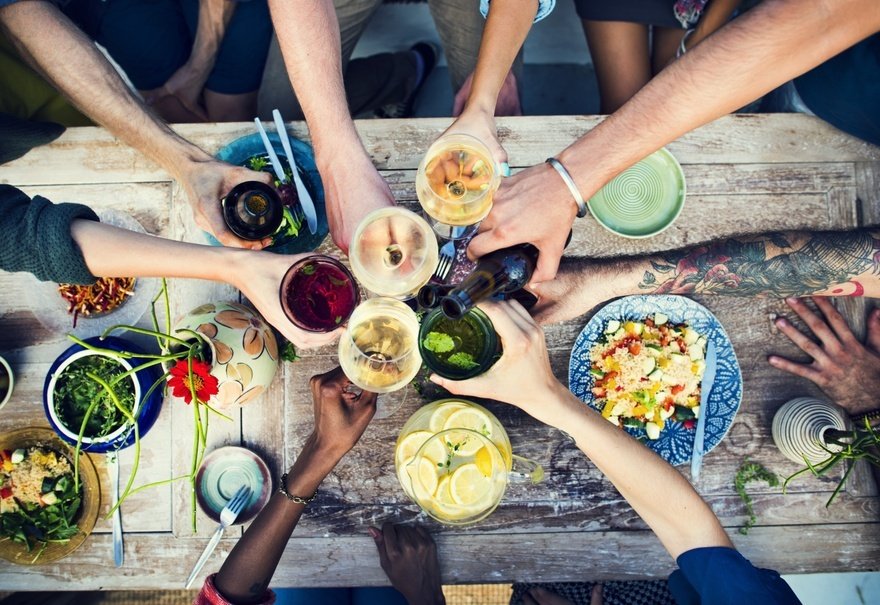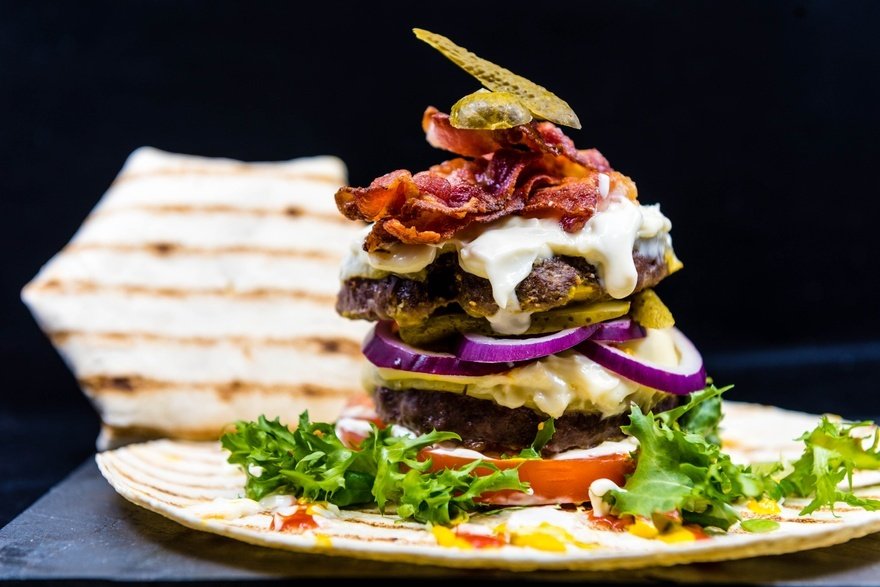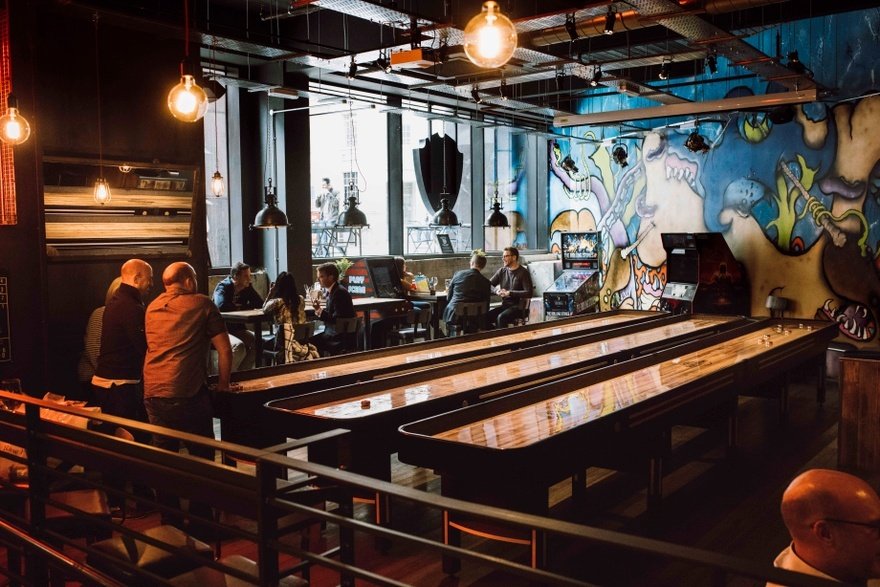How pubs can get ahead in 2020, from drinks to food and entertainment
Today's pub can no longer rely on the humble pint, with consumers looking for more exciting, premium and occasionally low-alcohol drink options, as well as expecting a full range of dining opportunities and entertainment. John Porter reports
The national media recently seized on new pub statistics, prompting a flurry of headlines on the theme of "pub decline reversed as numbers increase". An upward trend reported in December by digital marketing firm Stampede, based on Office for National Statistics (ONS) data, was confirmed in January by the ONS itself. Its figures show the overall number of pubs and bars in the UK increased by 315 between 2018 and 2019, the first increase for a decade.
The report had any of us who have monitored the pub market professionally over any period of time scratching our heads. It seemed to contradict the received wisdom that absolute pubs numbers continue to decline, with more than 20,000 lost in the past generation – although the continued shift from smaller country and suburban sites to large town centre venues means the square footage may have increased.
CGA, the industry analyst which tracks ontrade numbers for both pubs and the wider eating-out sector, also stepped in with a barely heard "er...actually" in response to the Stampede report. CGA's regular Market Growth Monitor report, also published in December, found there are currently 34,427 pubs in Great Britain, a decline of 859 over the 12 months to September 2019, in addition to 14,315 bars and café bars, a decline of 102 over the same period.
So what is going on? Firstly, the ONS figures include Northern Ireland, while CGA tracks only Great Britain, but there's no evidence that Northern Ireland has been immune to the decline in pub numbers over recent decades. One possibility is that the ONS figures for onpremise licences fail to distinguish between ‘proper' pubs and other venues, such as shopfront micropubs, bottle shop-style retailers that also sell some keg or cask beer, and the taproom-type venues operated by many of the UK's 2,000-plus brewers.
If that helps to explain the disparity, it also demonstrates the fact that beer drinkers, let alone those looking for a broader range of eating and drinking choices out of home, have more options than ever. The challenge for pubs as 2020 gets under way is to maintain a compelling offer across food, drink and entertainment.
Drink trends
With the drinks offer core to pubs, CGA's assessment of the key trends for 2020 are:
Beer: While the volume of beer sales has slipped, their value has nudged up, indicating that consumers are drinking slightly less beer, but spending more when they do so, reflecting a premiumisation trend across drinking-out. Stout and world lager are beer categories in growth.
Spirits: The gin boom continues, with on-trade sales up by 42% to more than £490m in 2019. Premiumisation of traditional styles, as well as flavoured variants such as pink gin, will continue to fuel growth, while rum and tequila are also in growth, driven by their popularity in cocktails. With lighter drink options popular, CGA expects spritzers to be back on drinks menus in a big way this year.
Cider: Cider volumes in the on-trade slipped by 1.5% in 2019, while the value of sales increased by 0.7%, reflecting the premiumisation trend. The value of fruit cider sales has risen 1.2% in the last year, compared to a 2.8% fall for apple brands.
Soft drinks: Soft drinks have a 23.2% share of total wet sales in the on-trade, with sales by value up 2.7% year-on-year at £4.6b, making it a stronger performer than key categories like beer, cider or wine. Mixers, lemonade and cola have all seen growth, while squash and juice drinks have lost market share. Alternative drinks like CBDs and cold brews, which are on a steep upward curve in the US, could break through in the UK in 2020.
Wine: Wine continues to struggle in the ontrade, with a 5.9% drop in volume, and value sales down 1.6%, suggesting people are paying more for the wine they do order. While consumers are being lured away from wine to gin, cocktails and other drinks, growth in sparkling wine, and linked to that the rising popularity of spritzers, is an opportunity for innovation. These serves are also very social media friendly. CGA believes Prosecco rosé could follow the path of pink gin to become one of the big drink trends of 2020.
Food trends
With the casual dining market having seen growth stutter, many food suppliers are looking to the pub market. Mohammed Essa, commercial director, Aviko UK & Ireland, predicts: "Going into 2020 we are expecting to see a fusion of flavours appear on pub menus, with tacos and bao buns growing in popularity. Smoke and coal-cooking will also play its role in bringing new dimensions to dishes, with chocolate finding its way into more savoury dishes.
"As 22.3 million consumers in the UK make a conscious effort to cut down on their meat consumption by following a flexitarian, vegetarian or vegan diet, this megatrend is going to play a huge role for pubs."
Aviko has launched a range of potato skins, pre-sliced into halves or quarters, to help operators try a variety of plant-based flavour combinations across the menu, from starters and sharing platters to lunches and snacking options. Serving suggestions include guacamole, firecracker peppers and curried chickpea and spinach.
As suppliers look for these new opportunities, the often-neglected pub snack is getting makeover. Customers used to the choice being between crisps or nuts with their pint now find themselves being offered a menu of hot snacks matched to beer. McCain Foodservice Solutions has coined the term "Beermunch" for this style of food occasion, which while it may not carry the same romance as tapas or antipasti, more-orless does the job in describing the intended market for McCain's Brew City range of eight hot bar snack products.
Robin Norton, category controller for the business, says: "We believe that pubs and bars can improve their delivery on the ‘food with beer' occasion, whether they are already a dryled business or taking their first steps away from being purely a wet business by introducing some lighter food options."
Citing NPD Group research that shows that out-of-home snacking spend increased by 11% in the last year, Norton says "millennials in particular are grazers who tend to be big on socialising", while "consumers are moving away from the traditional role of a side dish and, instead, are looking for something that not only stands out individually but can also form part of a ‘pick ‘n' mix' selection."
Also attempting to take the pub snack upmarket is the Made for Drink brand, which offers bagged snacks such as Duck Fritons, Chorizo Thins and Salami Chips. Founder Dan Featherstone says: "We are vocal advocates for Friday night snacking because the simple truth is that some things, like Made for Drink snacks, shouldn't be eaten every day but instead saved for the weekend, when great drinks and company deserve something exceptional to accompany them."
Taking the opportunity further afield, Ajinomoto Foods Europe offers Japanese gyoza in five savoury flavours and has launched an "Ultimate Bar Snack' operator guide to help pubs make the most of the opportunity to match gyoza with their drinks range.
Pub classics
Closer to home in terms of pub classics, Lamb Weston has launched the Dukes, a range of thick-cut chips targeting pub meals, more than half of which include chips.
In its 2020 Vision menu trends report, fresh food supplier Bidfresh reports that game is also growing in appeal to bars and pubs, including partridge, a tender and easy to cook bird, which is an ideal introduction to game dishes, and venison, widely used in burgers, pies and Scotch eggs.
While pub meals are often indulgent, Anna Massie, brand manager at Macphie, advises pubs not to neglect current consumer trends.
The brand has added two plant-based sauces to its range, a white sauce and a cheese sauce, with supporting recipes such as Mediterranean roast vegetable layered bake, and cauliflower cheese and potato pie. The sauces can also add value as a topping for burgers or hot dogs or to create dirty fries and savoury doughnuts.
Massie says: "Pubs are changing by broadening their appeal to a wider range of demographics. The food offering at some establishments, however, is losing out to the rising standards and range at restaurants.
"Growth in healthier and more responsible eating is creating menu challenges for pubs as the great British public continues to demand more from its overall pub experience. Close to a quarter of women believe healthier options, better food quality and a wider range of food will improve their pub experience, with healthier options significantly more important for women than men. Sharing plates are also more popular among women than men."
One pub classic in need of reappraisal in the light of changing menu expectations is the burger, argues Young's Foodservice. Its quarter pounder fillet of fish made with Alaska pollock can be served with kimchi, mango salsa, pickled fennel or an Asian-inspired slaw to add a wow factor.
As a flexible menu option, Richard Cooper, senior brand manager with Dr Oetker Professional, points to figures showing that pizza occasions in pubs have doubled in the past two years to 19 million.
"Offering full pizzas or by the slice appeals to those looking to grab something quick. It can also help keep menus fresh by switching toppings to reflect the latest taste trends, including vegan, world flavours and spice.
"Artisan pizzas are increasingly making their way onto menus, driving incremental value for pubs and offering a real point of difference for consumers who are looking for quality and value for money when eating out."
Anna Nafalska-Veillat, shopper, foodservice and e-commerce marketing manager of tortilla and flatbread supplier Mission Foods, suggests that trends towards international cuisines and more casual, street food-style menus mean "pub operators have to continually adapt to stay ahead of the competition by offering exciting and full-flavoured menu options."
Tilda UK expects street food flavours to continue in popularity in 2020, including ‘New Wave' Mexican ingredients such as lime, fish, coriander and beans; West African dishes, from Nigerian jollof rice to Gambian chicken yassa; and Indian street food.
Entertainment trends
Games have always been core to the pub offer, but in urban locations, pastimes such as dominoes and cribbage have given way to a new breed of offer. Ben Minter, commercial manager of shuffleboard specialist Shufl UK, says: "We've witnessed the rise of competitive socialising in the UK. It's a dynamic sector with a continuous stream of city-centre venues opening, offering anything from darts, ping-pong, beer pong, crazy golf and shuffleboard to axe-throwing."
Among the operators embracing shuffleboard is BrewDog, which has installed tables in a number of city centre venues. BrewDog Tower Hill general manager Rob Woolford says: "In November we hosted the final of the European Shuffleboard Championships, the UK's first major shuffleboard tournament, on our 22-footers. We run our own monthly shuffleboard tournament and have built up a dynamic player community."
Staffing and service
Staffing is clearly going to continue be an issue as pub operators wait to see what the post-Brexit employment landscape looks like. Workforce management specialist Bizimply argues that customer satisfaction is what gives pubs their competitive edge over consumers simply staying in, ordering through Deliveroo and watching Netflix.
Its staff rota and payroll management software frees key staff to spend less time on back office tasks and more interacting with both teams and customers, as Drew Brown, managing director of pub operator and Bizimply customer Dominion Hospitality, observes: "Our general managers were spending hours sorting out staff rotas and payroll. It was a frustrating experience for them and for their teams, and it meant they were tied up in the back office instead of managing their pub from front of house, where they can deliver the most value.
"With Bizimply, team members are getting their shifts further in advance, improving their work-life balance and overall morale, and managers can create rotas in minutes, not hours. The objective of all this wasn't to contain labour costs, but to make sure we had the right level of staffing: having too few staff is worse than having too many as it can lead to poor customer service and lost business."
Suppliers
- Ajinomoto Foods Europewww.cust.pro.ajinomoto.co.uk
- Aviko UK & Irelandwww.aviko.co.uk
- Bidfreshwww.bidfresh.co.uk
- Bizimplywww.bizimply.com
- CGAwww.cga.co.uk
- Dr Oetker Professionalwww.oetker-professional.co.uk
- Lamb Westonwww.lambweston.eu/uk
- Macphiewww.macphie.com
- Made for Drinkwww.madefordrink.com
- McCain Foodservicewww.mccainfoodservice.co.uk
- Mission Foodswww.missionfoodservice.co.uk
- Shufl UKwww.shufl.co.uk
- Stampedewww.stampede.ai
- Tilda UKwww.tildafoodservice.com
- Young's Foodservicewww.youngsfoodservice.co.uk
Continue reading
You need to create an account to read this article. It's free and only requires a few basic details.
Already subscribed? Log In













